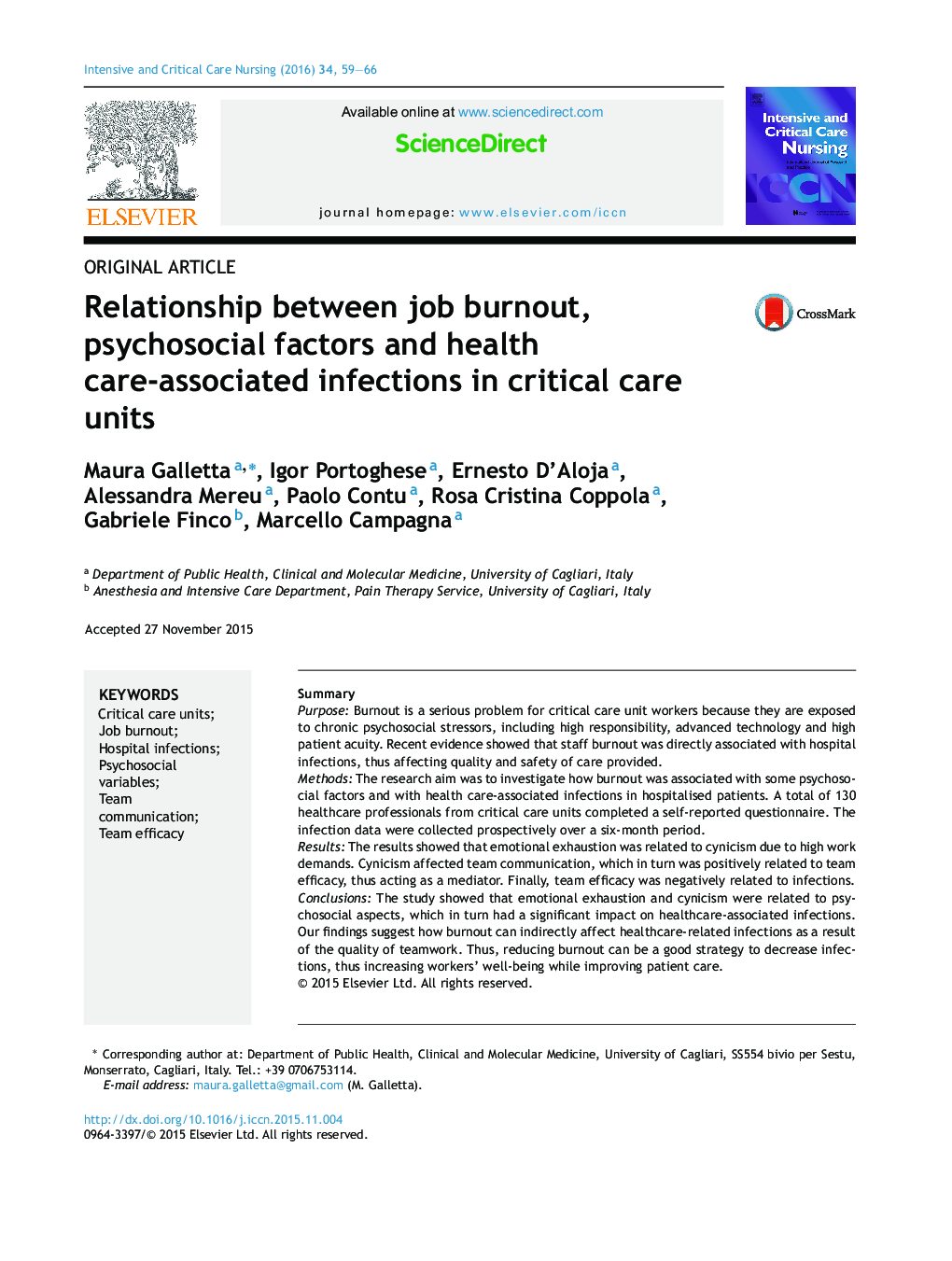| Article ID | Journal | Published Year | Pages | File Type |
|---|---|---|---|---|
| 2652050 | Intensive and Critical Care Nursing | 2016 | 8 Pages |
SummaryPurposeBurnout is a serious problem for critical care unit workers because they are exposed to chronic psychosocial stressors, including high responsibility, advanced technology and high patient acuity. Recent evidence showed that staff burnout was directly associated with hospital infections, thus affecting quality and safety of care provided.MethodsThe research aim was to investigate how burnout was associated with some psychosocial factors and with health care-associated infections in hospitalised patients. A total of 130 healthcare professionals from critical care units completed a self-reported questionnaire. The infection data were collected prospectively over a six-month period.ResultsThe results showed that emotional exhaustion was related to cynicism due to high work demands. Cynicism affected team communication, which in turn was positively related to team efficacy, thus acting as a mediator. Finally, team efficacy was negatively related to infections.ConclusionsThe study showed that emotional exhaustion and cynicism were related to psychosocial aspects, which in turn had a significant impact on healthcare-associated infections. Our findings suggest how burnout can indirectly affect healthcare-related infections as a result of the quality of teamwork. Thus, reducing burnout can be a good strategy to decrease infections, thus increasing workers’ well-being while improving patient care.
